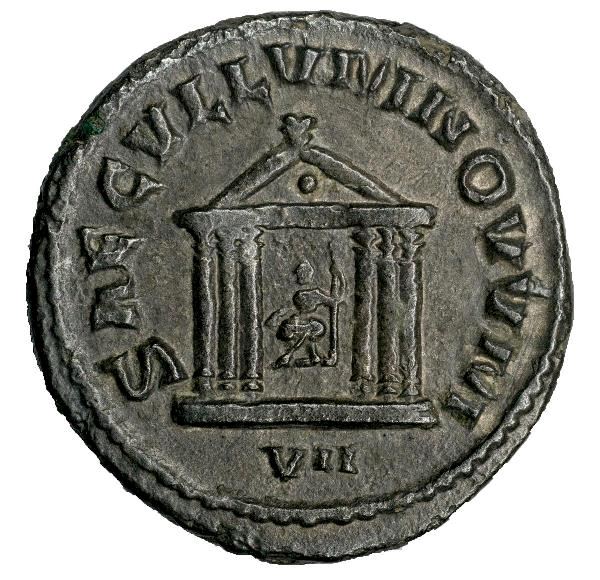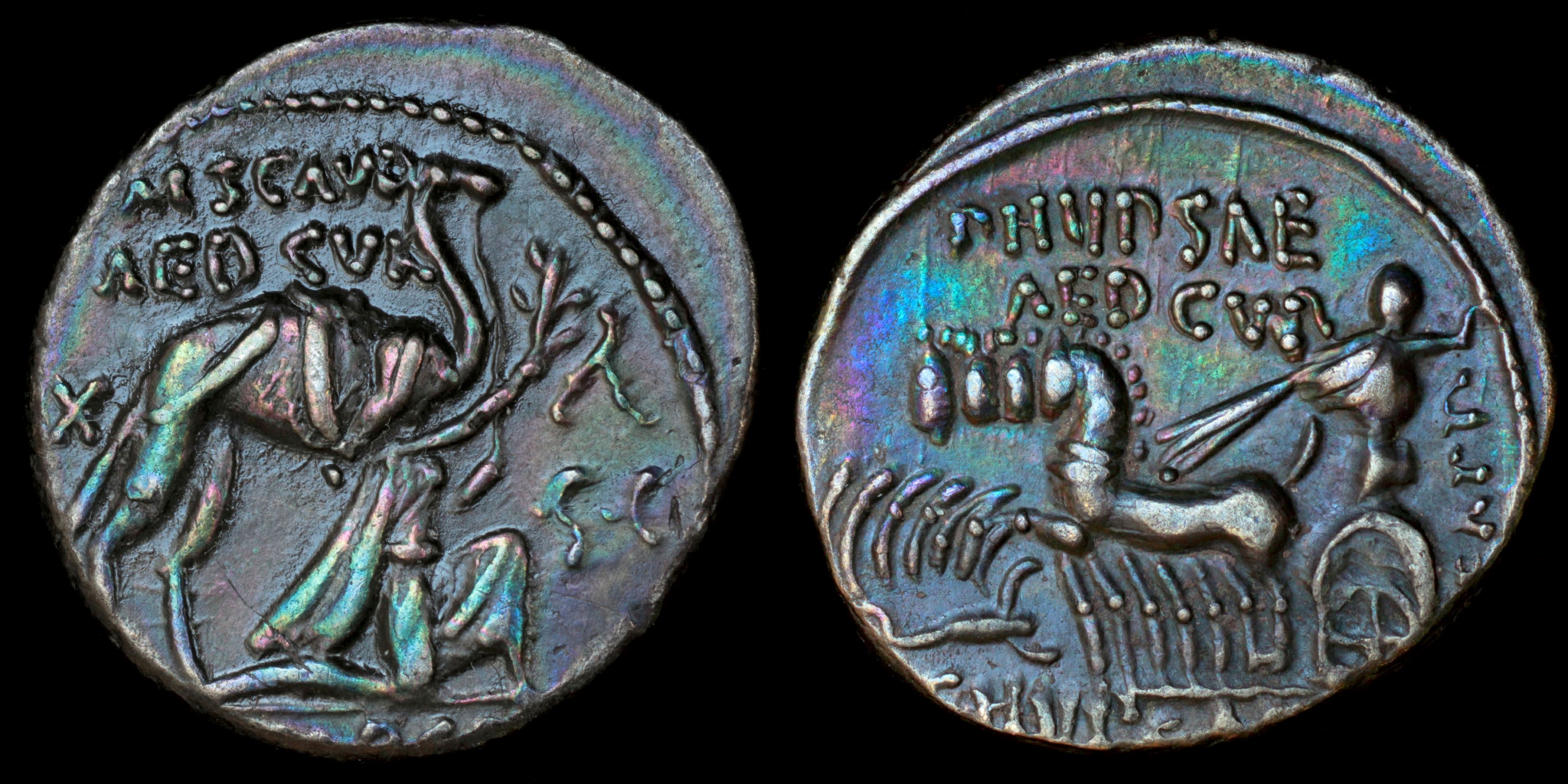Ok, so for some reason this ruler, mint, denomination or collection does not have a description yet - oops!
There are two possible explanations for this:
No description has been written yet
The property is incorrectly named
If the former, patience is key - this site covers thousands of entities, and all must have a manually created description written.
If the latter, try renaming the property - 'Domitian as Caesar' has no description, but 'Domitian' does.
There are two possible explanations for this:
If the former, patience is key - this site covers thousands of entities, and all must have a manually created description written.
If the latter, try renaming the property - 'Domitian as Caesar' has no description, but 'Domitian' does.

(1)
M. Aemilius Scaurus
|
P. Plautius Hypsaeus

Obverse: Aretas, king of Nabatea, kneeling beside camel raising olive branch with fillet M SCAVR / AED CVR / EX S C / REX ARETAS
Reverse: Jupiter in quadriga left, holding reins and thunderbolt, scorpion right P HYPSAE / AED CVR / CAPT / C HYPSAE COS / PREIVE
Diameter:
18 mm
Die Orientation: -
Weight: 4 g
Die Orientation: -
Weight: 4 g
Marcus Aemilius Scaurus and Publius Plautius Hypsaeus. The moneyers were Curule aediles in 58 BC. Scaurus became praetor in 56 BC and Hypsaeus in 55 BC.
Scaurus lost his father when he was young. He was raised by Sulla as a step-son. He served as quaestor under Pompey and as proquaestor in the third Mithridatic war in 66-61 BC. In the same time conflict between Aristobulus II and Hyrcanus II broke out in Judea. Nabatean king Aretas III supported Hyrcanus and besieged Aristobulus in Jerusalem. Scaurus was send as intermediary. He sent Aretas back and settled the conflict in favour of Aristobulus. Later Pompey accused him of bribery and removed Aristobulus in 63 BC. Scaurus moved to Petra then he was called back after payment of 300 talent fine.
Hypsaeus also served as quaestor under Pompey. Reverse commemorates conquest of Volscian town Priverna by moneyer's ancestor Gaius Plautius Decianus Hypsaeus in 330-329 BC.
Scaurus was the first who depicted event from his own life on coins.
Crawford 422/1b, SRCV I 379, Sydenham 913, RSC I Aemilia 8
